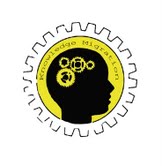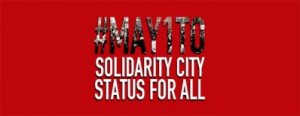MAY 15–17, 2013
Chestnut Conference Centre
89 Chestnut Street
Toronto, ON
M5G 1R1
The conference website can be viewed at http://crs.yorku.ca/encounters
For directions, please visit this link: http://chestnutconferencecentre.utoronto.ca/contact
To register online, please click HERE
Indigenous peoples are the original caretakers of Canada, but their encounters with settlers have been marred by assimilation and territorial dispossession over hundreds of years. The result has been significant alienation between Indigenous peoples and Canadian governments. Conversely, immigrants to Canada, which for the purposes of this conference include early colonists, recent immigrants, refugees and displaced persons, have often viewed the country as a haven or land of opportunity. However, many are sorely unaware of Indigenous history, rights and contributions to Canada’s development. No people or community can speak for another; individual and group knowledge is intrinsic and internal. However, in keeping with the ideal of “mutual sharing” emphasized in the Royal Commission on Aboriginal Peoples, respect and trust can be fostered through shared difference. While the specific experiences of Indigenous peoples, immigrant communities, refugees and Canadian-born citizens are very different on many levels, connections can be developed through dialogue and reciprocity. Indigenous peoples as well as immigrant and refugee communities experience discrimination, racism, stigmatization and marginalization. These encounters represent a wider systemic problem in Canadian political, legal, sociocultural and historical contexts. Efforts to overcome exclusion can be built through increased awareness and knowledge-building, with support from allies.
This conference aims to fill this gap in knowledge and will bring together leaders from government and the judiciary, legal scholars, academics and practitioners to formulate practical solutions. The primary objective is to build bridges – cultural, political, intellectual and social connections – between those who share the lands of what is now Canada. The underlying rationale of the conference stems from the fact that Canada is now shared by Indigenous peoples, descendants of early settlers and more recent immigrant and refugee communities. These communities encounter Canada in very different ways based on racial identity, ancestral heritage, cultural background, community belonging, language and spiritual practice. Bridging the chasm that exists between Indigenous peoples and all newcomers, whether early or contemporary immigrants or refugees, is urgently needed in order to end discrimination and achieve equitable quality of life for all who live in this country. To this end, the objective is to understand how Indigenous peoples and various immigrant groups experience their lives in Canada. How are the challenges they face different? Are there shared goals and experiences upon which to build future alliances to achieve improved quality of life in Canada?
Conference papers are expected to be published subsequently in an edited volume, and topics will relate to the following broad themes:
(1) “Colonialism versus Consent”: Indigenous peoples have been and continue to be negatively impacted by colonialism. They did not consent to assimilation or territorial dispossession. Early settlers and contemporary immigrants and refugees generally have chosen to make Canada their home; this choice was not imposed on them. In the context of colonialism and consent, what have been the contrasting experiences of Indigenous peoples versus settler/immigrant/refugee communities?
(2) “Exclusion and Identity”: Indigenous peoples have faced centuries of exclusion and assimilation on their own lands. Early settlers did not face these forms of discrimination, but new immigrants and refugees often experience life on the perimeters of Canadian society. How are these experiences of race and identity different or similar? Are there similarities in how Indigenous peoples and immigrant communities maintain or revitalize their cultures and languages? Could encounters with exclusion and discrimination become points of “shared difference” between Indigenous peoples and immigrant communities? If so, is there the potential for building alliances?
(3) “Place and Displacement”: The role of “place” is a vital component of identity. Spiritual and cultural attachment to the land is a predominant component of most Indigenous identities. Similarly, displacement and attachment to home significantly impact life experience, sense of security and the physical and mental well-being of immigrants and refugees who come to Canada. Are there similarities between the territorial dispossession experienced by Indigenous peoples in Canada and refugee communities? What are the impacts of forced migration, especially for those communities who seek to revitalize, recreate or reinvent their identities after losing a sense of “place”? How is “place” experienced by immigrant groups who voluntarily or actively choose to reside in Canada?
(4) “Nationalism and Alienation”: Any form of exclusion or discrimination is apt to result in alienation. While experienced differently and in different contexts, Indigenous peoples and immigrant/refugee communities are often alienated from the Canadian mainstream. This perpetuates disadvantage, erects barriers between communities and highlights the differences between “others”. How should the myriad of different national identities be respected in Canada? How should the original contributions of Indigenous peoples be recognized?
(5) “Recognition and Respect”: Recognition of difference – historical, cultural, political and social – is a vital sign of respect for a people or nation. Many who live in Canada are unaware of the distinctive histories and contributions of Indigenous peoples. Many are also unaware of the cultures and values of immigrant and refugee communities. What should be done to promote awareness and appreciation of the different groups that share what is now Canada? What might recognition of difference look like in legal, political and cultural contexts, and how would recognition differ for Indigenous peoples versus immigrant/refugee communities in practice? How should the differing cultural practices, histories and identities of Indigenous peoples be promoted and respected? In contrast, what should Canadians learn about immigrant and refugee communities?
(6) “Relationship-Building and Community Engagement”: Indigenous peoples face an alarming array of dire problems, akin to third-world conditions in an otherwise prosperous country. Immigrant and refugee communities also often contend with poorer quality of life than the “average” Canadian. How are these experiences different? What needs to be done to remedy these problems? Is relationship-building and reconciliation the answer for Indigenous peoples, and if so, what should approaches look like? Can and should alliances be forged between Indigenous peoples and settler/immigrant communities, both early and recent? How and in what contexts (i.e. legal, political, cultural, social) should all communities be actively involved in the creation of their futures?
All questions concerning the conference should be directed to the principal academic organizer, Dr. Jennifer Dalton, Assistant Professor, School of Public Policy & Administration, Faculty of Liberal Arts & Professional Studies, and Centre for Refugee Studies Scholar (jedalton@yorku.ca). Interested participants may also contact the members of the Conference Organizing Committee: Dr. David McNab, Associate Professor of Indigenous Thought and Canadian Studies, Departments of Equity Studies/Humanities, Faculty of Liberal Arts & Professional Studies (dtmcnab@yorku.ca); Dr. James Simeon, Acting Director, Centre for Refugee Studies, and Associate Professor, School of Public Policy and Administration, Faculty of Liberal Arts & Professional Studies (jcsimeon@yorku.ca); Dr. H. Tom Wilson, Professor, Faculties of Graduate Studies, Law and Liberal Arts & Professional Studies, and Senior Fellow of McLaughlin College (htwilson@osgoode.yorku.ca).


 Despite widespread opposition from a broad group of health care workers across Canada, the federal government has implemented cuts to health insurance for refugees. As predicted, many are suffering as a result. There have been well documented cases of people being denied care including pregnant women and sick children. Over 20 national health care organizations including the Canadian Medical Association, Canadian Nurses Association and the College of Family Physicians of Canada have issued statements against the cuts
Despite widespread opposition from a broad group of health care workers across Canada, the federal government has implemented cuts to health insurance for refugees. As predicted, many are suffering as a result. There have been well documented cases of people being denied care including pregnant women and sick children. Over 20 national health care organizations including the Canadian Medical Association, Canadian Nurses Association and the College of Family Physicians of Canada have issued statements against the cuts

